














|
 |
 |

4th Cork (Cobh)
Safety
on the
Water |
 |
 |
 1. Check condition of boat and equipment, hull, engine, fuel, tools, torch.
1. Check condition of boat and equipment, hull, engine, fuel, tools, torch.
 2. Check the weather forecast for the area.
2. Check the weather forecast for the area.
 3. Check locally concerning dangerous currents, strong tides, etc.
3. Check locally concerning dangerous currents, strong tides, etc.
 4. Do not drink alcohol when setting out or during your trip.
4. Do not drink alcohol when setting out or during your trip.
 5. Carry an alternative means of propulsion eg. sails and oars or motor and oars.
5. Carry an alternative means of propulsion eg. sails and oars or motor and oars.
 6. Carry a first aid kit on board and distress signals (at least two parachute distress rockets, two red hand flares).
6. Carry a first aid kit on board and distress signals (at least two parachute distress rockets, two red hand flares).
 7. Carry a fire extinguisher, a hand bailer or bucket with lanyard and an anchor with rope attached.
7. Carry a fire extinguisher, a hand bailer or bucket with lanyard and an anchor with rope attached.
 8. Carry marine radio or some means of communication with shore.
8. Carry marine radio or some means of communication with shore.
 9. Do not overload the boat- this will make it unstable.
9. Do not overload the boat- this will make it unstable.
 10. Do not set out unless accompanied by an experienced person.
10. Do not set out unless accompanied by an experienced person.
 11. Leave details of your planned trip with someone ashore - including departure and arrival times, description of boat, names of persons aboard, etc.
11. Leave details of your planned trip with someone ashore - including departure and arrival times, description of boat, names of persons aboard, etc.
 12. Wear a life jacket/buoyancy aid at all times.
12. Wear a life jacket/buoyancy aid at all times.
 13. Keep an eye on the weather - seek shelter in good time.
13. Keep an eye on the weather - seek shelter in good time.
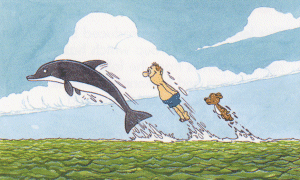 14. Learn how to swim.
14. Learn how to swim.
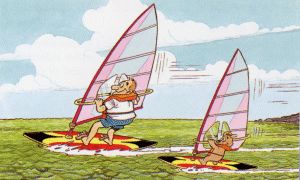 15. Never take to the water alone. Always sail with a friend.
15. Never take to the water alone. Always sail with a friend.
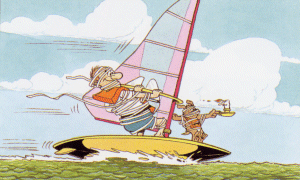 16. Make sure your boat is highly visible both above the water AND beneath. Bright coloured paint and reflective tape can aid detection.
16. Make sure your boat is highly visible both above the water AND beneath. Bright coloured paint and reflective tape can aid detection.
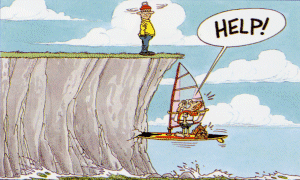 17. If you get into trouble, raise the alarm sooner rather than later, and stay with your boat.
17. If you get into trouble, raise the alarm sooner rather than later, and stay with your boat.
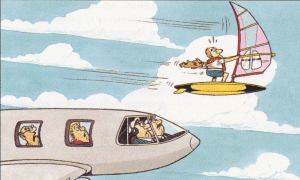 18. Make sure you are capable of sailing in the prevailing wind conditions. Beware of fatigue.
18. Make sure you are capable of sailing in the prevailing wind conditions. Beware of fatigue.
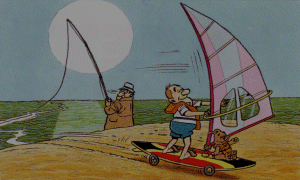 19. Keep an eye on the weather Return home in good time and long before daylight fades.
19. Keep an eye on the weather Return home in good time and long before daylight fades.
 20. Know how to raise the alarm.
20. Know how to raise the alarm.

Images and text taken (without permission) from "Safety on the Water" leaflets produced by:
Department of the Marine, Leeson Lane, Dublin 2, Ireland. [353-1-678-5444]
|

|























